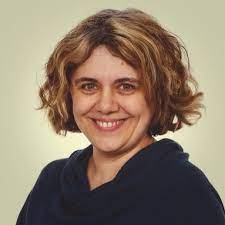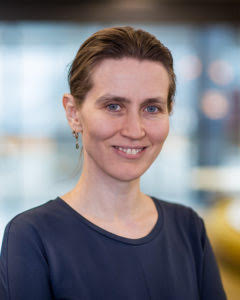Keynote Speakers

Carmen Bratosin
TNO - Netherlands Organization for Applied Scientific Research, The Netherlands.
BIO: Carmen Bratosin is a project manager at TNO-ESI (esi.nl), a leading applied research institution specializing in system design and engineering within the high-tech equipment sector in the Netherlands. With more than 15 years of expertise, Carmen has adeptly utilized her knowledge to create and put into practice novel methodologies that bridge the realms of modeling and artificial intelligence. Her extensive professional journey has encompassed collaborations with renowned companies such as ASML, Canon Production Printing, and Philips.
TITLE: Formal Methods and Domain Models in the Age of Large Language Models: An Industrial Perspective
ABSTRACT: The public introduction of Large Language Models (LLMs) through the release of ChatGPT sparked inquiries regarding its implications within the engineering domain. This presentation explores insights assembled from collaborative research conducted between TNO-ESI and the Dutch high-tech industry, emphasizing the pivotal role of domain models in tandem with data science and AI techniques. Drawing from tangible examples, we posit that (domain) models, firmly rooted in precise syntax and semantics, serve as indispensable cornerstones for the success of the application of AI in industry. While AI models significantly contribute to opening the door to new applications, enhancing engineering processes, and increasing efficiency, they cannot entirely replace the fundamental role domain models play. This keynote explores the dynamic interplay between these components, shedding light on their nuanced relationships within engineering.

Natalia Sidorova
Eindhoven University of Technology, The Netherlands.
BIO: Natalia Sidorova is a member of Eindhoven Artificial Intelligence Systems Institute and of the Process analytics group of Eindhoven University of Technology. Her research interests include algorithms and techniques for process analytics using data-driven approaches. Dr Sidorova has published more than 100 papers in the leading journals and conferences in her field and has served on the programme committees of the major conferences. In her professional journey, Natalia maintains a strong collaboration with industry partners, applying her knowledge and skills to the practical development of process mining and conformance checking techniques for real-world applications.
TITLE: Navigating the Complexity: From data to models of weakly-structured processes
ABSTRACT: The complexity of real-life processes poses a significant challenge in process analytics. These processes involve intricate interactions, multiple actors and resources, and a blend of structured and unstructured sub-processes. In this keynote, we focus on the task of mining models of weakly-structured processes using data generated during the process execution and on performing conformance checking using a decompositional approach. We also address the inherent challenges associated with the nature of process execution data, which often combines structured elements with unstructured text. Our objective is to extract meaningful events from unstructured text data, leveraging domain knowledge and tailoring techniques to weakly-structured processes. The methods will be illustrated through case studies from the healthcare industry, shedding light on the real-world applications of our research.